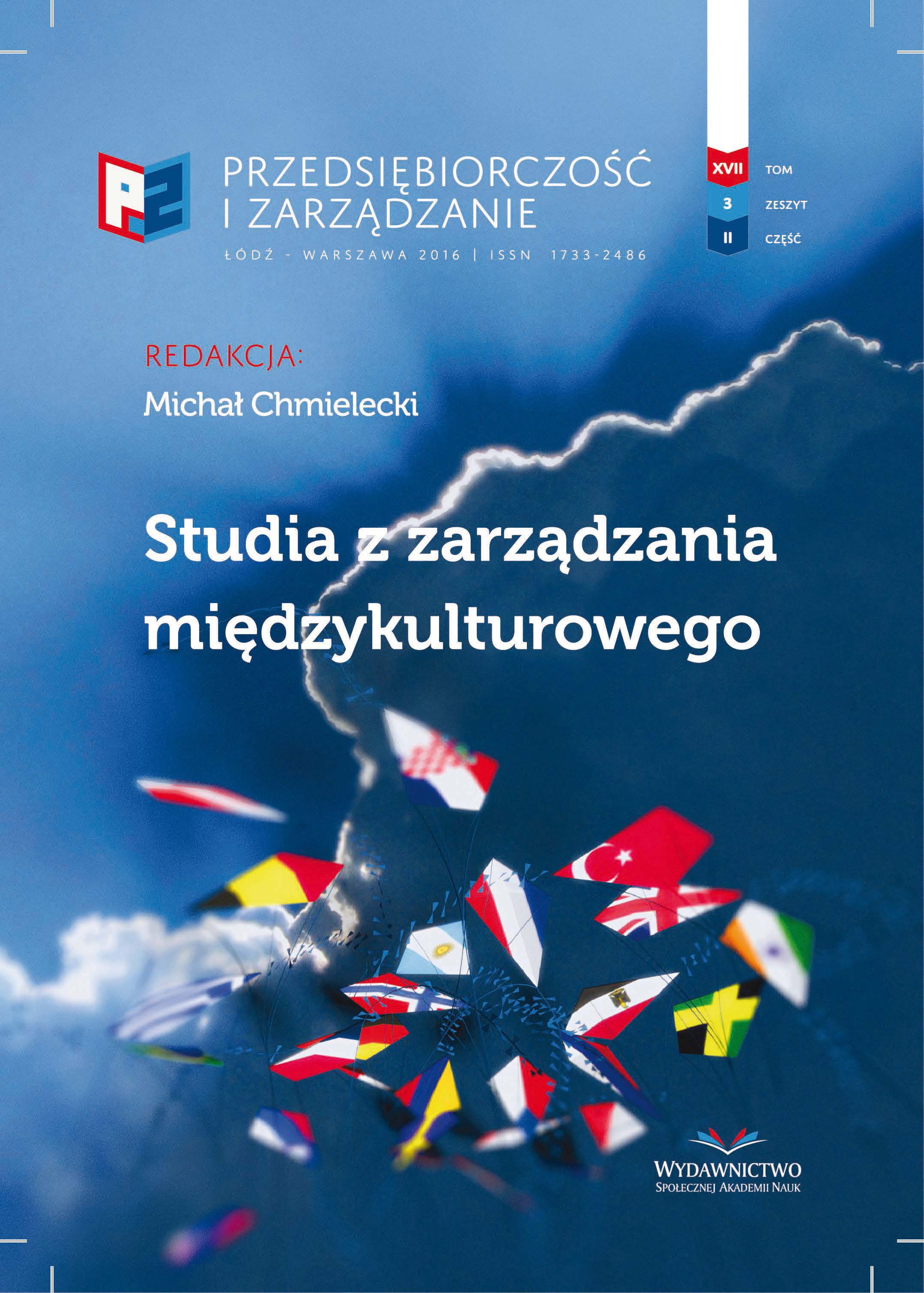Paradygmat jakościowy w analizie interakcji
międzykulturowych – interpretacja na bazie
wybranych teorii psychologicznych
Qualitive Paradigm and Intercultural Interactions –
Interpretation with Regard to Selected Psychological Theories
Author(s): Małgorzata Rozkwitalska, Beata Basińska A., Łukasz Sułkowski, Michał Chmielecki, Sylwia PrzytułaSubject(s): Sociology, Socio-Economic Research
Published by: Społeczna Akademia Nauk
Keywords: intercultural interactions; cultural diversity; qualitative research; grounded theory; Positive Organizational Scholarship
Summary/Abstract: Intercultural interactions in a multicultural work environment are a peculiar type of social interactions. The results of prior research on the effects of interactions in such environment are inconclusive. The majority of the previous studies have emphasized problems, applied a quantitative methodology and interpreted the results with regard to social identity and categorization theory, information-processing theory and intergroup contact theory. The aim of this paper is to interpret intercultural interactions with regard to selected psychological theories. The qualitative paradigm was implemented to the authors’ study, while the grounded theory approach was used to analyze the data gathered in five subsidiaries of multinational corporations. The results suggest that working in a multicultural environment generates specific demands which can be perceived by individuals either as hindrances or challenges. Organizational resources,e.g. training courses, IT technology, organizational culture that promotes diversity, and individual resources, particularly psychological capital, international experience and acquired skills (mainly language skills), determine the perception of work demands and work outcomes.
Journal: Przedsiębiorczość i Zarządzanie
- Issue Year: 17/2016
- Issue No: 3.2
- Page Range: 141-159
- Page Count: 19
- Language: Polish

